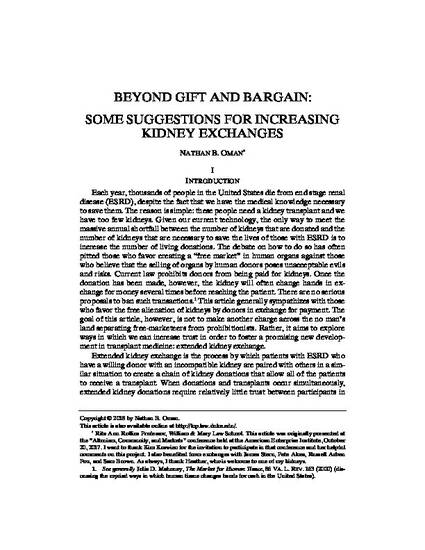
Each year, thousands of people in the United States die from end stage renal disease (ESRD), despite the fact that we have the medical knowledge necessary to save them. The reason is simple: these people need a kidney transplant and we have too few kidneys. Given our current technology, the only way to meet the massive annual shortfall between the number of kidneys that are donated and the number of kidneys that are necessary to save the lives of those with ESRD is to increase the number of living donations. The debate on how to do so has often pitted those who favor creating a “free market” in human organs against those who believe that the selling of organs by human donors poses unacceptable evils and risks. Current law prohibits donors from being paid for kidneys. Once the donation has been made, however, the kidney will often change hands in exchange for money several times before reaching the patient. There are no serious proposals to ban such transactions. This article generally sympathizes with those who favor the free alienation of kidneys by donors in exchange for payment. The goal of this article, however, is not to make another charge across the no man’s land separating free-marketeers from prohibitionists. Rather, it aims to explore ways in which we can increase trust in order to foster a promising new development in transplant medicine: extended kidney exchange.
Available at: http://works.bepress.com/nathan-oman/14/
